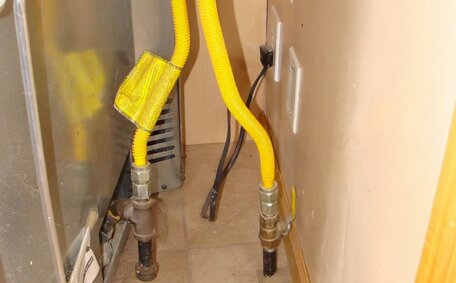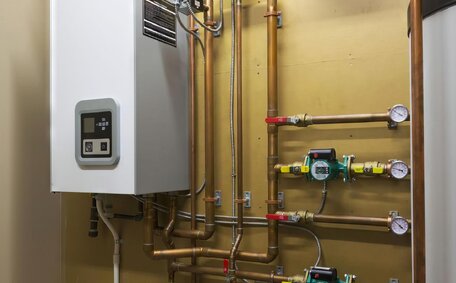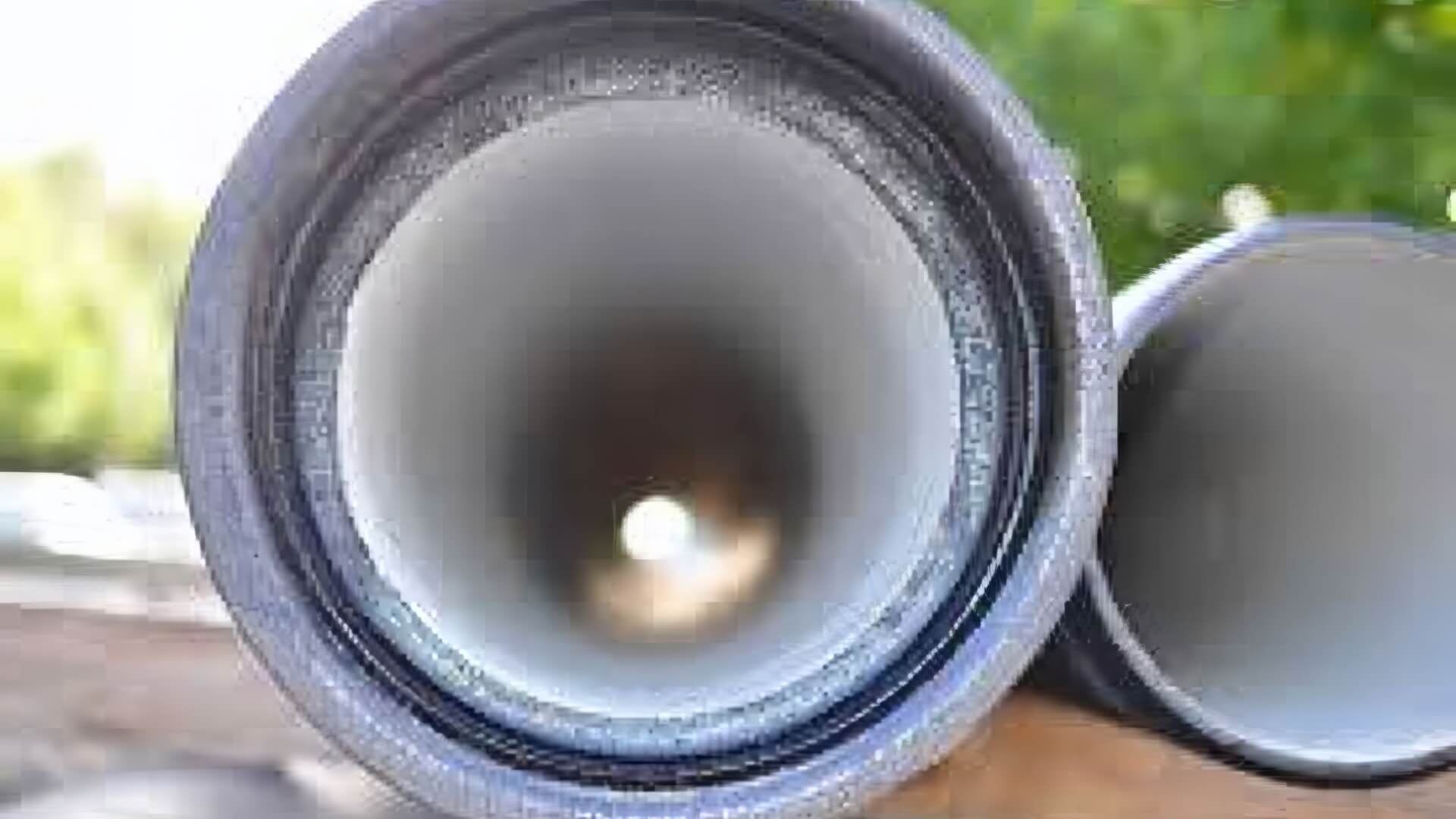
Keep Updated on Gas Appliance Recalls
Consumers should maintain awareness of current gas appliance recalls and safety alerts to prevent injuries. Check recall lists regularly to protect your home and family.
Read MoreIn rental properties, essential plumbing services are critical, as blocked drains can lead to significant inconvenience and health risks for tenants. When a drain becomes blocked, determining whether the landlord or the tenant is responsible for unblocking it can be confusing. This guide will clarify who is responsible for blocked drains and offer preventative tips, addressing the unique concerns of Sydney rental properties.
Leveraging over a decade of service in Werrington and across Sydney, we have the expertise to address any blocked drain situation. Our aim is to offer practical, unbiased advice to help landlords and tenants prevent and manage blocked drains.
Common indicators of a blocked drain in a rental property include:
These signs often indicate a partial or complete blockage, usually due to grease, hair, tree roots, or other debris.
Promptly identifying and clearing a blocked drain reduces the likelihood of lasting damage, unsanitary conditions, property damage from water leaks, and other complications.
There are several common culprits behind blocked drains in rental properties:
Frequent blockages often suggest an underlying issue that may require measures such as installing mesh drain covers or professional drain cleaning. Preventative measures are crucial in avoiding recurrent issues and costly repairs.
There are several steps landlords and tenants can take to help prevent drains from becoming blocked in rental properties:
Taking preventative measures is advised to reduce drain clogs, thus preventing backups and potential water damage. It also reduces the risk of repeat blockages that can signal larger plumbing issues. Staying proactive allows each property owner and their renters to avoid headaches down the line.
Determining who responsible for clearing a blocked drain, whether the landlord or the tenant, depends on the specific circumstances:
Standard tenancy laws dictate that landlords are expected to maintain amenities like plumbing and drainage systems in good working order. Tenants are responsible for repairing damage arising from their negligence. Should either party cause a blockage, they must take reasonable steps to remedy the situation.
In disputes over liability, consult a blocked drain plumber and lodge a complaint with Fair Trading NSW for mediation assistance. Getting a diagnosis from a licensed plumber where the work was accurately done can determine causes and clarify responsibility moving forward.
Tenants are obliged to maintain property fixtures like sinks and drains. Their responsibilities, which aim at fixing blocked drains before they start, typically include:
Although landlords usually handle wear-and-tear plumbing repairs, tenants are accountable for blockages caused by their actions. For instance, if cooking oil is poured down the sink and later hardens, clogging the pipes. Tenants would use their funds to cover costs of clearing the drain blocked and repairing any resulting damage.
Upholding their duties, both parties can minimise avoidable drain clogs. This helps make sure that expensive repairs and disputes over liability are avoided if problems do occur.
As owners of rental properties, landlords have certain obligations under the Residential Tenancies Act to provide and maintain systems such as stormwater drainage in a reasonable state of repair. This includes ensuring proper functioning of essential amenities like plumbing and sewerage systems.
Landlords are typically responsible for repair costs if a blockage is due to normal wear and tear or tree root invasions in external drainage pipes.
Additional landlord responsibilities regarding blocked drains include:
Although tenants have a duty of care, landlords are equally responsible for maintaining the property’s drainage system. Staying proactive by addressing potential issues helps prevent costly emergency repairs.
There are a few key situations where the landlord would typically be liable for clearing a blocked drain in a rental property:
Essentially, if the blockage stems from infrastructure issues beyond the tenant’s control, the landlord is responsible for covering the cost of professional drain clearing and any repairs necessary to restore proper functionality.
However, landlords are not liable if tenants directly caused a blockage by inappropriate usage, such as pouring fats down the kitchen sink. Tenants may then need to pay for unblocking, repairs, and any resulting property damage.
Regardless of cause, the landlord should still take reasonable measures to rectify any drainage issues affecting the rental to maintain habitability and prevent disputes over liability. This demonstrates fulfilling their duties under residential tenancies legislation.
As tenants, you have certain rights and entitlements regarding blocked drains and the situation was that your landlord is responsible for fixing. This includes:
While Tenants have a duty to avoid negligent usage that could result in blocked drain issues, your landlord’s share responsibility for addressing issues stemming from normal wear and tear or external factors out of the renter’s control. This requires taking swift actions to resolve blocked drain issues and undertaking any repairs needed to restore proper drainage functionality.
Blockages in shared drains between rental properties can create confusion over who is responsible for clearing and repairing the drain. As a tenant, if you discover a blocked drain within your private wastewater system, the first step is to contact your landlord or property manager to report the issue.
Your landlord will need to investigate where blockage originates exactly. If the blockage is within the rental property’s boundary, like the pipes from the house to the main sewer, the landlord is responsible for clearing it.
However, if the blockage occurs in a main shared drain or sewer pipe that the local council can manage, your landlord will need to contact them to handle repairs. Costs might be divided between affected properties when the cause of the blockage is unclear.
If disputes arise between tenants and landlords regarding liability for clearing or repairing a blocked shared drain, tenants can contact NSW Fair Trading for guidance in resolving issues. Fair Trading can also assist if landlords fail to promptly fix drains they are responsible for maintaining.
A best practice approach is to facilitate a meeting with professionals to foster open communication among tenants, landlords, and strata or owners corporations, aiming to locate the blockage and develop a practical solution. Getting professional drain assessments the next day helps determine causes and responsibility where unclear. Maintaining shared drains regularly also minimises blockages and disputes.
Effective communication between landlords and tenants is essential for maintaining properties and addressing plumbing issues such as blocked drains. Key best practices involve:
Upholding maintenance duties allows effective collaboration with a reliable plumber to minimise clogs and ensure prompt repair, thus preventing significant damage.
At Werrington Plumbing, we’re dedicated to providing impartial assessments and emergency clearing services for blocked drains in Sydney rentals. Our skilled plumbers offer quality service, expert advice, and practical solutions, educating tenants and landlords about their responsibilities to foster better maintenance and partnerships.
Consumers should maintain awareness of current gas appliance recalls and safety alerts to prevent injuries. Check recall lists regularly to protect your home and family.
Read MoreHard water leaves mineral deposits in hot water heaters and systems, causing corrosion and limescale buildup. This reduces efficiency and leads to higher energy bills and repair costs over time. Installing a water softener protects hot water appliances by removing the minerals that cause scale.
Read MoreYes, pipes can be relined more than once if they become damaged again. Our pipe relining service uses epoxy resin to coat the inside of your existing pipes, repairing cracks and damage for over 50 years. As experts, we’ll have your pipes relined in just one day with no digging required.
Read MoreWerrington, 2747 NSW
We will call back as soon as possible.




